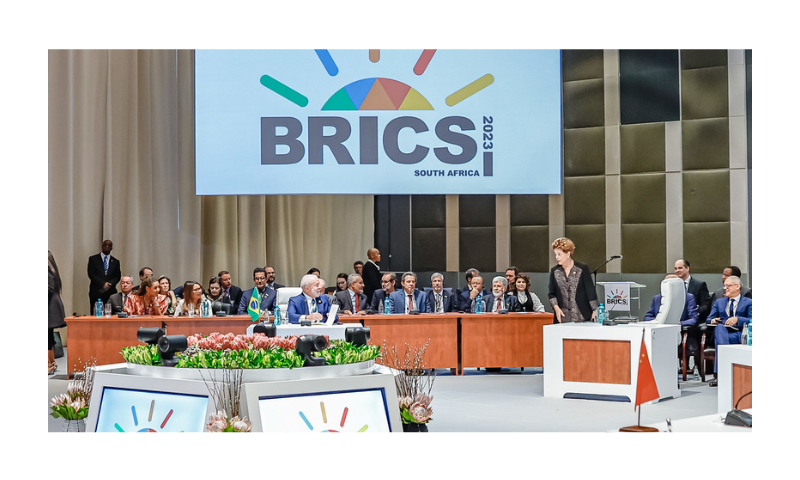Frank Furedi
Spiked, Aug. 25, 2023
“Russian foreign policy certainly benefits from an association with BRICS, but China is the main beneficiary here. There has even been the suggestion that if the bloc uses its own currencies to trade with each other, instead of relying on the US dollar, then the Chinese currency, the renminbi, could emerge as a serious rival to the dollar.”
The BRICS summit in Johannesburg this week represents a potentially significant moment in the shifting, fragmenting world order.
BRICS – an acronym for Brazil, Russia, India, China and South Africa – is an economic bloc made up of the fastest-growing developing countries. From the very moment of its first summit in 2009, this bloc has positioned itself as an alternative to the G7 bloc of advanced economies, made up of Canada, France, Germany, Italy, Japan, the UK and the US.
BRICS members resent the dominant role of the G7 in world affairs, and the hegemonic pretensions of the US in particular. BRICS nations argue that their bloc represents the interests of the Global South, and that soon BRICS will more than match the economic power of the G7.
At this week’s Johannesburg summit, the leaders of BRICS invited six more nations to join their club: Argentina, Egypt, Ethiopia, Iran, Saudi Arabia and the United Arab Emirates. Their membership will certainly increase BRICS’s influence over global affairs. Indeed, one of BRICS’s chief aims is to blunt the influence of the West. With some 40 more countries showing an interest in joining BRICS, that objective looks achievable. Make no mistake, this economic bloc could become a serious geopolitical force.
… [To read the full article, click here]


